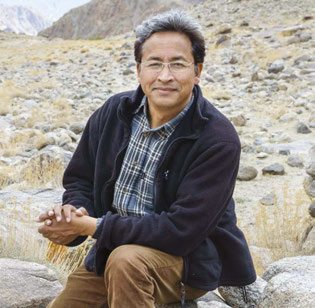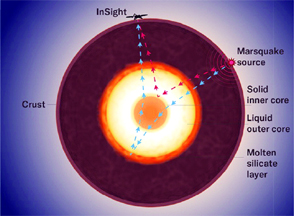
LOS ANGELES (TIP): Sonam Wangchuk, an engineer from Ladakh, India, who was the inspiration behind Aamir Khan’s “Phunsukh Wangdu” character in the blockbuster film 3 Idiots, was one of the recipients of the 2016 Rolex Awards for Enterprise for his remedy to combat severe seasonal water scarcity in the western Himalayas by building artificial glaciers – “ice stupas” shaped like Buddhist monuments – to store water to irrigate and reforest desert land.
To mark the 40th anniversary of the program this year, Rolex decided to present Awards to five Laureates and five Young Laureates. The 10 winners received their Awards at a ceremony on 15 November 2016 at the Dolby Theatre in Los Angeles. Each winner received a Rolex chronometer and funding for their project (Laureates receive 100,000 Swiss francs, and Young Laureates, between 18-30 years old, 50,000 Swiss francs). They will benefit from a worldwide publicity campaign.
Sonam Wangchuk is helping farmers in Ladakh to overcome water shortages by building artificial glaciers. In spring, farmers who live at 3,500 m in the trans-Himalayan mountains of Ladakh, in India, face acute water shortages. Ladakhi engineer Sonam Wangchuk’s ingenious solution is to freeze glacial melt water into towering conical mounds resembling Tibetan religious stupas. These ice stupas behave like mini-glaciers, slowly releasing irrigation water for the growing season.
Wangchuk’s design builds on the experimental work of fellow Ladakhi engineer Chewang Norphel, who created flat artificial glaciers. Wangchuk realized, however, that a workable structure must have a minimal surface area to provide protection from the sun, especially at lower altitudes. Thanks to this design, ice stupas melt at a slower rate than flat ice. The 2015 prototype, the result of a crowdfunding campaign that paid for a 2.3 km pipeline to direct glacial streams down to the village desert, lasted until early July, supplying 1.5 million liters of meltwater to 5,000 saplings planted by locals. With his Rolex Award funds he intends to create up to 20 ice stupas, each 30 meters high, and initiate a substantial tree-planting program on the desert near their school once the new water supply system is established.
Wangchuk believes that education and care for the environment go hand in hand. In addition to his work with young people at SECMOL, the Students’ Educational and Cultural Movement of Ladakh, through its Alternative School he has started work on establishing an alternative university in the same area. His objective is to engage young people from the Himalayas and beyond in eco-solutions for mountain areas.





Be the first to comment